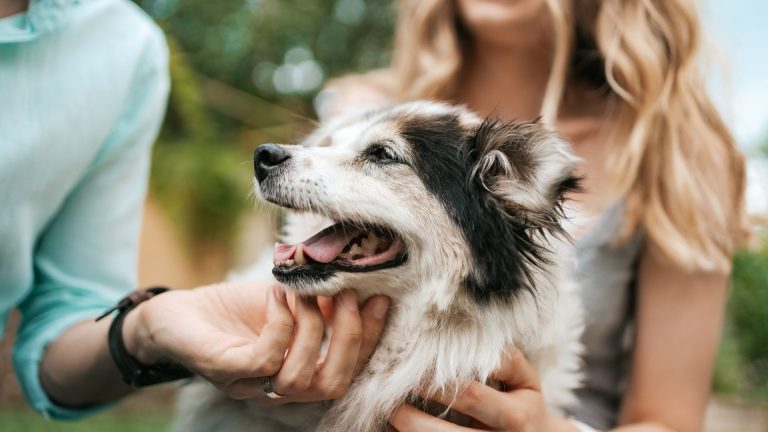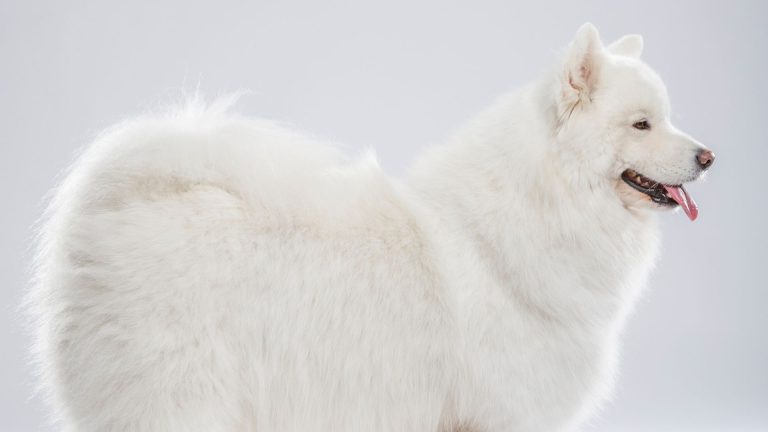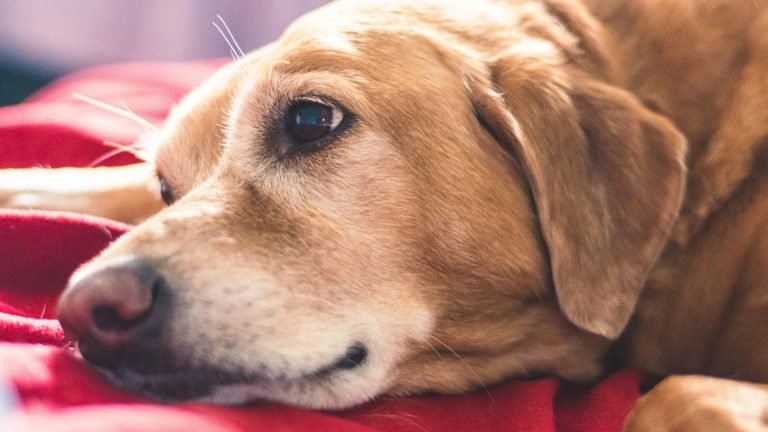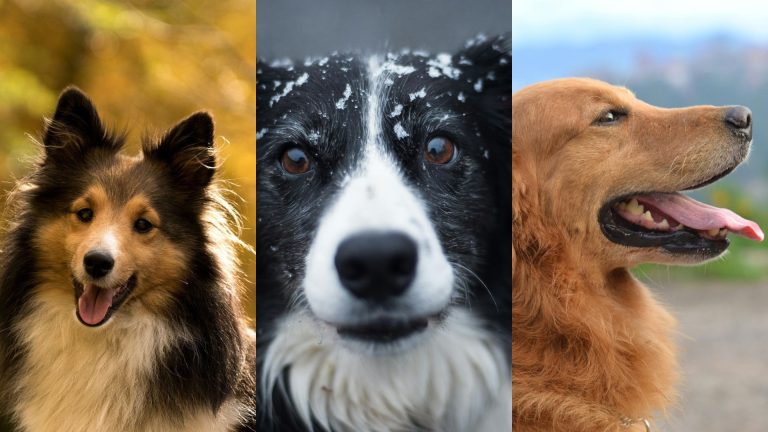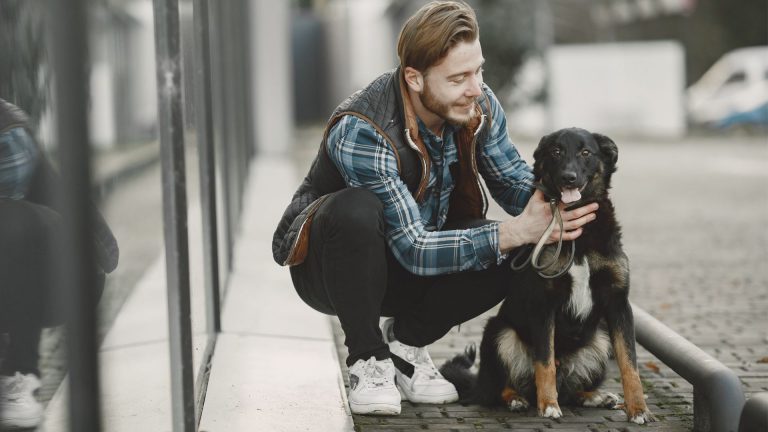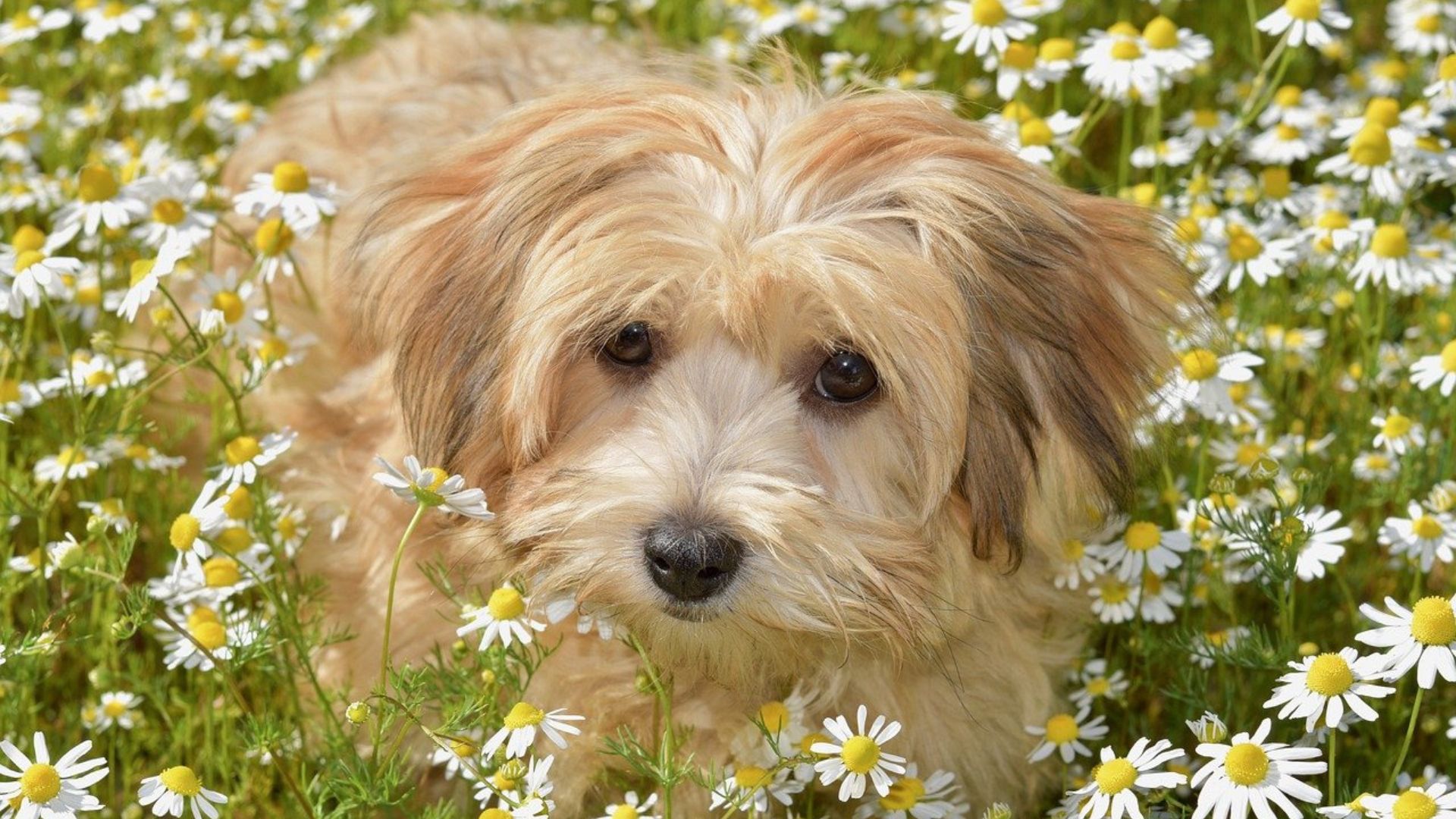
Contents
The Havanese dog, often called the “Velcro dog” for its love of sticking close to its owner, is a small breed with a big heart. These little dogs are known for their cheerful disposition, silky coats, and endearing personalities. But what does it take to care for a Havanese? Whether you’re thinking about adding one to your family or just want to learn more about this charming breed, you’ve come to the right place. In this guide, we’ll cover everything you need to know about Havanese dogs, from their history and personality traits to their grooming needs and training tips.
A Brief History of the Havanese
The Havanese breed has a rich history that traces back to Cuba, where they are believed to have descended from the Bichon family of dogs, specifically the now-extinct Blanquito de la Habana. These dogs were brought to Cuba by Spanish settlers in the 1600s and quickly became popular among the Cuban aristocracy. Their small size, friendly nature, and luxurious coats made them ideal lapdogs and companions.
By the 18th century, the Havanese had gained popularity across Europe, where they were often seen as pets of the wealthy. However, the breed’s numbers declined significantly in Cuba during the mid-20th century due to political turmoil. Fortunately, a few dedicated breeders preserved the Havanese, and today, they are one of the most beloved toy breeds in the United States and around the world.
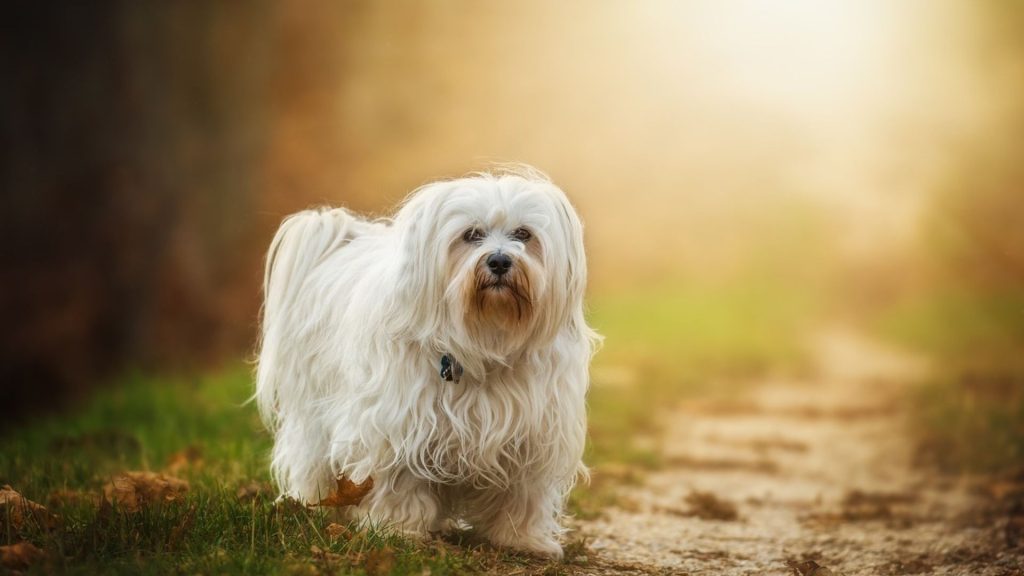
Havanese Personality: Small Dog, Big Heart
Havanese dogs are known for their affectionate and friendly nature. They thrive on human companionship and are happiest when they’re close to their family members. This breed is often described as being like a “shadow,” always following their owners from room to room.
Key Traits of Havanese:
- Affectionate and Loyal: Havanese dogs form strong bonds with their owners and are extremely loyal. They love to be cuddled and will happily sit on your lap for hours.
- Playful and Energetic: Despite their small size, Havanese dogs are full of energy. They enjoy playtime and need regular exercise to stay happy and healthy.
- Intelligent and Trainable: Havanese dogs are highly intelligent and eager to please, making them relatively easy to train. They respond well to positive reinforcement techniques and love to learn new tricks.
- Social and Friendly: Havanese are very social dogs that get along well with people of all ages, including children. They also tend to do well with other pets.
- Adaptable: Whether you live in an apartment or a house with a yard, Havanese dogs can adapt to various living environments. However, they do best in homes where they aren’t left alone for long periods, as they can become anxious if isolated.
Caring for Your Havanese
Owning a Havanese is a joy, but like all dogs, they require proper care to ensure they live a long, healthy life. Here’s what you need to know about caring for a Havanese dog:
1. Exercise Needs
While Havanese dogs are small, they still require daily exercise to burn off their energy. A couple of short walks each day, combined with some playtime, will usually suffice. These dogs are known for their playful antics, so engaging them in games like fetch or hide-and-seek can be a great way to keep them active.
Tip: Havanese dogs love mental stimulation as much as physical exercise. Puzzle toys and interactive games can help keep their minds sharp.
2. Diet and Nutrition
A balanced diet is crucial for a Havanese’s health. Due to their small size, it’s important not to overfeed them, as they can be prone to obesity. Choose a high-quality dog food that meets their nutritional needs, and be mindful of portion sizes. Treats are great for training but should be given in moderation.
Warning: Like many small breeds, Havanese dogs can be prone to dental issues. Opt for a diet that supports dental health, and consider incorporating dental chews into their routine.
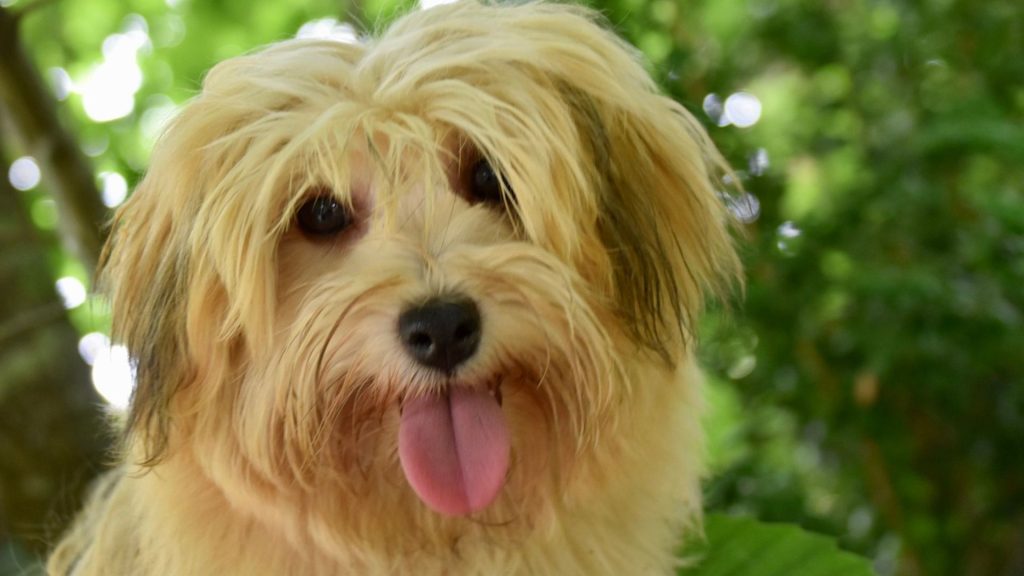
3. Grooming Requirements
One of the most distinctive features of the Havanese is its silky, flowing coat. While beautiful, their coat requires regular grooming to prevent tangles and matting. Daily brushing is recommended to keep their coat looking its best. Additionally, many Havanese owners choose to keep their dog’s coat trimmed in a “puppy cut” for easier maintenance.
Eyes and Ears: Havanese dogs can be prone to tear staining around the eyes, so regular cleaning is important. Their ears should also be checked regularly and kept clean to prevent infections.
Bathing: These dogs don’t have an undercoat, which makes them less prone to shedding, but they still need regular baths to keep their coat clean and soft. Aim for a bath every few weeks, or more frequently if your dog tends to get dirty.
4. Health Considerations
Havanese dogs are generally healthy, but like all breeds, they can be susceptible to certain health issues. Common problems include hip dysplasia, cataracts, and heart murmurs. Regular veterinary check-ups and a healthy lifestyle are key to preventing and managing these issues.
Patellar Luxation: This is a common issue in small breeds, where the kneecap can slip out of place. Regular exercise and maintaining a healthy weight can help reduce the risk.
Allergies: Some Havanese dogs may suffer from skin allergies, which can cause itching and discomfort. A vet can help determine the cause and suggest appropriate treatments or dietary changes.
Training Your Havanese
Training a Havanese can be a rewarding experience due to their intelligence and eagerness to learn. However, like all dogs, they require patience and consistency.
Basic Commands: Start with basic commands such as “sit,” “stay,” and “come.” Havanese dogs respond well to positive reinforcement, so be sure to use treats and praise to encourage good behavior.
House Training: House training a Havanese can be a bit challenging, as small breeds often have smaller bladders. Crate training can be an effective method, and consistency is key. Take your dog outside frequently, especially after meals and naps.
Socialization: Early socialization is important to ensure your Havanese grows into a well-rounded adult dog. Expose them to a variety of people, places, and other animals to build their confidence and reduce the likelihood of fear-based behaviors.
Obedience Classes: If you’re a first-time dog owner or just want some extra help, enrolling your Havanese in an obedience class can be a great idea. These classes not only teach basic commands but also provide valuable socialization opportunities.
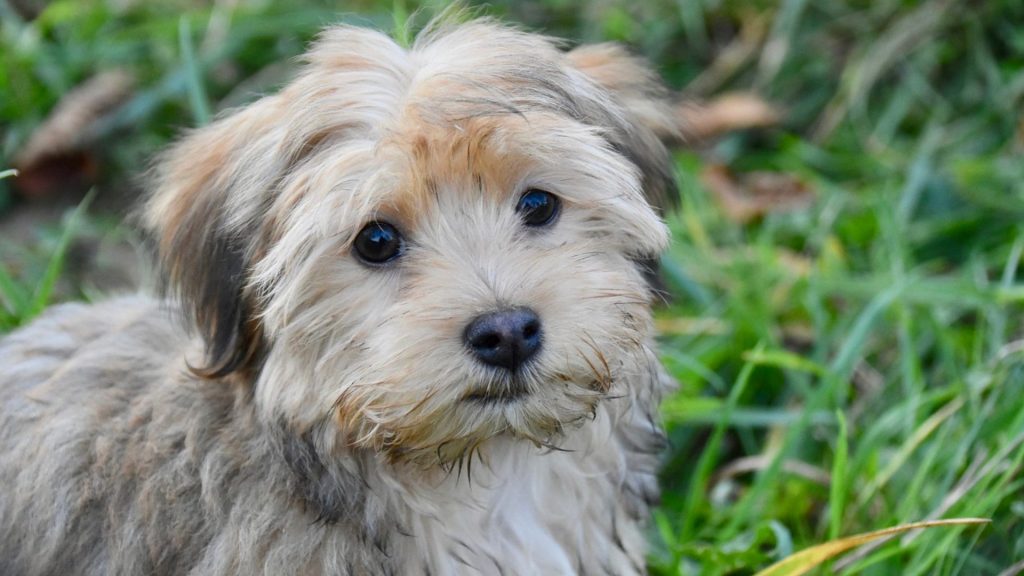
Why Havanese Make Wonderful Pets
Havanese dogs are more than just cute companions—they bring a lot of joy and love into their owners’ lives. Here’s why they make such wonderful pets:
Perfect for Families: Havanese dogs are great with children and can fit seamlessly into a family environment. Their gentle and playful nature makes them ideal companions for kids.
Adaptable to Different Lifestyles: Whether you live in a bustling city apartment or a quiet suburban home, the Havanese can adapt. They’re equally comfortable in smaller spaces as long as they get enough attention and exercise.
Low Shedding: If you’re looking for a dog that doesn’t shed much, the Havanese is a great choice. Their coat requires grooming, but they don’t leave hair all over your furniture and clothes.
Loyal and Loving: Perhaps the most endearing quality of the Havanese is their loyalty. These dogs love to be with their people and are known for their affectionate nature.
Conclusion
The Havanese is a delightful breed that offers so much love and companionship in a small package. Their cheerful disposition, adaptability, and intelligence make them an excellent choice for a wide range of households. However, like any pet, they require time, care, and attention to thrive.
If you’re considering adding a Havanese to your family, be prepared for a loyal, loving companion who will bring endless joy to your life. With proper care, training, and love, your Havanese will be a cherished member of your family for years to come.
FAQs About Havanese Dogs
1. Are Havanese good with other pets?
Yes, Havanese dogs typically get along well with other pets, especially if they are socialized from a young age.
2. How often should I groom my Havanese?
Daily brushing is ideal to prevent matting, especially if you keep their coat long. Regular trimming and bathing every few weeks are also recommended.
3. Do Havanese dogs bark a lot?
Havanese dogs are not excessive barkers, but they will alert you to strangers or unusual noises. With proper training, barking can be managed.
4. Are Havanese suitable for apartment living?
Yes, Havanese dogs are well-suited for apartment living as long as they get enough exercise and mental stimulation.

Hello, I’m Donna Carter, the founder and writer behind PetFleck.com. My journey with dogs started years ago, and it’s been a passion that has only grown stronger over time. I’ve always been fascinated by the unique behaviors and characteristics of different dog breeds, and this curiosity has led me to dive deep into the world of canine studies.
My love for dogs is the driving force behind everything I do. I’ve dedicated countless hours to researching and understanding the nuances of dog care, training, and breed-specific traits. This dedication helps me create content that is not only informative but also genuinely helpful for fellow dog lovers and owners.
At PetFleck, I combine my extensive knowledge and hands-on experience with my passion for dogs to provide valuable insights and tips. Whether it’s exploring different breeds or offering practical advice on dog care, I aim to share knowledge that makes a real difference in the lives of dogs and their families.
I’m thrilled to share my love for dogs with you through my writing. I hope my articles inspire and inform, helping you to better understand and appreciate the incredible bond we share with our furry friends.
Thank you for visiting PetFleck.com, and I look forward to connecting with you through our shared love of dogs!


